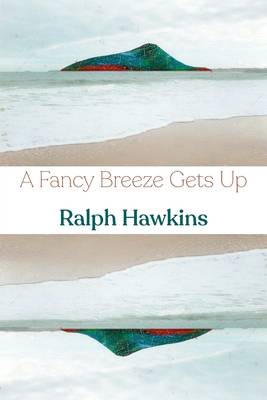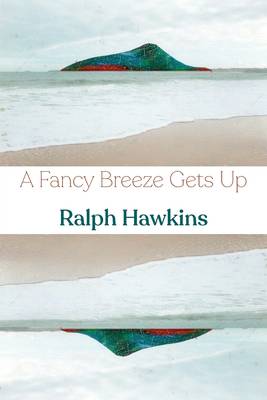
- Afhalen na 1 uur in een winkel met voorraad
- Gratis thuislevering in België vanaf € 30
- Ruim aanbod met 7 miljoen producten
- Afhalen na 1 uur in een winkel met voorraad
- Gratis thuislevering in België vanaf € 30
- Ruim aanbod met 7 miljoen producten
Zoeken
Omschrijving
A Fancy Breeze Gets Up collects together the poetry written by Ralph Hawkins since 2015 and the publication of It Looks Like An Island But Sails Away. In 1978 in his first book, English Literature, and before the concept of trigger warnings arose, Ralph Hawkins announced that he quite liked The Waste Land; it's 'like holding a gun at an ordinary/everyday person.' His own poetry has maintained a variously combative Modernist verve since then, and whilst no one has been threatened or shot because of it, it is a risky, occasionally disquieting and humorous poetry which challenges and rattles the possibilities of poetry itself. A Fancy Breeze Gets Up exhibits these qualities abundantly in three different ways in the three parts of the book. Part 1 is a set of dispersed, incidental staccato lyrics which pivot lightly on engagement and displacement by disorientating turns. If the reader requires grounding, it comes with part 2. 'Deceit Disguise Deception' is a stark factual account condensed from research into the psychopathology of the leading figures of the Soviet revolution, the significance of which is not merely historical. Part 3 shifts into new territory and is an exemplary work of ekphrasis. It draws upon the almost cartoon-like informal immediacy of Rose Wiley's painting in which the worked artifice of such composition is emulated and the poetry itself comes to exemplify the zest and joy of such art. In all three modes it is not a poetry written for those seeking a comforting, unambiguous worldview. One clue for us in the variety and engagement of the work might be in the poet's praise of Max Jacob and Ted Berrigan - their similar regions of dissimilarity, and their startling way of moving through them, is Ralph Hawkins' domain. It is a ground which refuses to be readily located or make for easy passage, and where the concept of the poet as your guide is remote, if not absent. Throughout, it is a poetry as quick-witted and unnerving as thought itself and unblinking in its vision of both sanctioned brutality and the unrestrained delight of human creativity. A Fancy Breeze Gets Up rises from where meaning is made rather than assigned, or merely accepted, and it acknowledges that we quite often operate at something of a tilt towards what is assumed to be the familiar world.
Specificaties
Betrokkenen
- Auteur(s):
- Uitgeverij:
Inhoud
- Aantal bladzijden:
- 148
- Taal:
- Engels
Eigenschappen
- Productcode (EAN):
- 9781848618312
- Verschijningsdatum:
- 29/07/2022
- Uitvoering:
- Paperback
- Formaat:
- Trade paperback (VS)
- Afmetingen:
- 152 mm x 229 mm
- Gewicht:
- 226 g

Alleen bij Standaard Boekhandel
+ 59 punten op je klantenkaart van Standaard Boekhandel
Beoordelingen
We publiceren alleen reviews die voldoen aan de voorwaarden voor reviews. Bekijk onze voorwaarden voor reviews.











